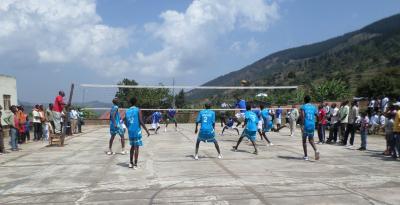Violence Prevention Initiative (VPI) June-September 2015 Report, Burundi
 |

The funding came in when tensions were increasing in Burundi. People were wondering whether or not president Nkurunziza would run for a third term. While the opposition and a considerable portion of his own camp CNDD-FDD had signed a petition forbidding the president to run for another term, the president along with his followers intensified the campaign to explain that the constitution allows him to run again as he was not directly elected by the population for his first term. On the other side, the opposition argued that whether elected directly by the population or not, the president has ruled two terms, meaning ten years, and therefore is ineligible for another term. The election violence this summer was especially concerning to many because of the long-standing legacy of genocide the country has faced in the recent past, and the ongoing potential for power struggles in the country to take on an ethnically-motivated dynamic.
The April 25 announcement of president Nkurunziza’s intention to run for a third term triggered a series of mass protests, and later a coup which eventually failed. Violence was used by both sides and it was reported that more than 80 people lost their lives due to this turmoil, more than 300 were injured, and thousands fled the country and are in exile in neighboring countries such as Rwanda, Tanzania and DRC. Following that controversy over the third term, it is said that new rebel groups have been created and some members of the police and the army have escaped to join rebel groups. This is particularly troubling because over the last twenty years, cycles of genocide across this region (between Rwanda, Uganda, Burundi, and DRC) have been committed by rebel groups who frequently draw their support along ethnic lines, and also by government-backed troops fighting rebels.
This report is a publication of the Center for Peacemaking Practice's Genocide Prevention Program.




